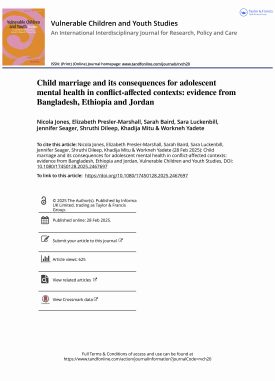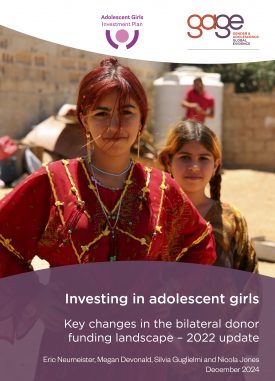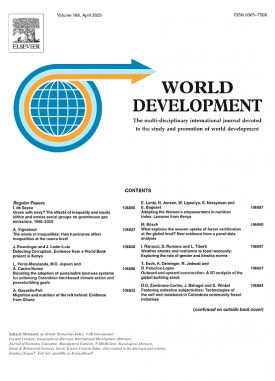Globally, adolescents and young adults are experiencing unprecedented rates of reported adverse mental health. Although rates of depression and anxiety began climbing in many countries prior to the outbreak of the Covid-19 pandemic in 2020, a recent meta-analysis of studies in upper middle-income and high-income countries found that since then, rates appear to have almost doubled. Ethiopia is not immune to these global challenges. Suicide is the fourth leading cause of death among young people aged 15–29.
This report builds on previous research and synthesises findings from the Gender and Adolescence: Global Evidence (GAGE) programme’s Round 3 data collection in Ethiopia, which took place between early 2021 and late 2022, to explore patterns in Ethiopian young people’s psychosocial well-being. Paying careful attention to similarities and differences between groups of young people with different characteristics – adolescents compared to young adults, girls and young women compared to boys and men, those living in rural South Gondar and East Hararghe compared to more urban Debre Tabor, and those who are especially vulnerable due to disability, child marriage or displacement – we explore psychological distress and emotional resilience, access to peer networks and supportive adults, substance use, and access to quality psychosocial services.
Suggested citation:
Presler-Marshall, E., Endale, K., Jones, N., Baird, S., Yadete, W., Kasahun, T., Woldehanna, T., and Hamory, J. (2024) ‘They told us not to be afraid and that our country continues’: Evidence from GAGE Round 3 about the psychosocial well-being of Ethiopian young people. Report. London: Gender and Adolescence (https://www.gage.odi.org/publication/they-told-us-not-to-be-afraid-and-that-our-country-continues-evidence-from-gage-round-3-about-the-psychosocial-well-being-of-ethiopian-young-people)


